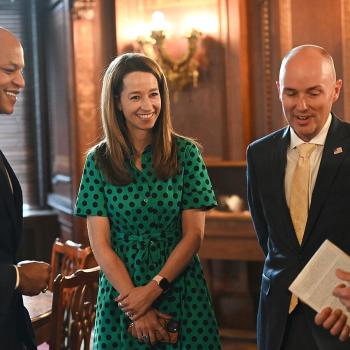Have mercy on me, O God, in your kindness,
in your compassion blot out my offense.
Wash me more and more of my guilt
and cleanse me of my sin.
David's brokenness, however destructive and emotionally unmooring, was itself finally a grace, for it allowed him to encounter his core humanity and therefore his utter dependence on God:
Sacrifice gives you no pleasure,
were I to offer holocaust, you would not have it.
My sacrifice is this broken spirit,
you will not scorn this crushed and broken heart.
It no pious sentiment to suggest that, if God is, then we are God's; we belong to God. And, therefore, we are accountable to this divine presence, not in terms of bearing relentless guilt, or cowering before a cosmic bully, but to consider soberly and thoughtfully several key questions: who am I? What am I about? How can I add something constructive to world, even in the most discreet, unknown, humble ways?
How can I love, and love more skillfully?
To put it another way, if we belong to God, then, in the end, our relationship to God or the sacred, is in fact the primary relationship in our lives. And this obtains owing to a fundamental anthropology: we are wired for the sacred; we always and everywhere, consciously or unconsciously, gravitate in the orbit of the divine. If God is, and God is the source of life and love, then it behooves us to become conscious of this existential orientation. Why? By knowing God, we come to know ourselves. Intimacy with the divine thus becomes the source of one's deepest identity. In a beautiful metaphor likening the soul to musical instruments, Rumi writes, "The tambourine begs, Touch my skin so I can be myself!"Touch—intimacy with the sacred—establishes identity and generates flourishing.
Perhaps some may take offense at a fundamental orientation or need for God woven into the human constitution. It may come off, to some, as, well, needy, or slavish or psychologically unhealthy. But some of the most intense spiritual expressions in the history of religions precisely exalt this state and cultivate it. Indeed, devotional (bhakti) poets in Hinduism were often hailed as "slaves of God"; in one of the great Bengali poems dedicated to Krishna, the words of Radha become a model for absolute devotion: "I have offered you everything; in truth, I have become your slave." Mirabai, the great Rajasthani saint of the 16th century, sings to Krishna, "I have been Your slave for many births/And You are my excellent Master."
:::page break:::
To frame this notion in ways that may make it understandable, if not entirely palatable, to Western sensibilities, it should be noted that much Indian devotional poetry borrows from models of human relationships, perhaps most strikingly as lover and Beloved; however, another significant model is that of master and servant. Indeed, the title of Vidya Dehija's scholarly study of Tamil devotional poets is illustrative—Slaves of the Lord. To be a slave in this case speaks to a dependence on the sacred that is both ontological and ultimate; we come from God, we belong to God. Poets of various religious traditions are unapologetic about this, affirming it with eyes wide open.
The Christian beatitude states, Blessed are those who know their need of God. We are fundamentally incomplete, and that space of incompletion—no matter how much we try to fill it with success or relationship or power or pleasure—remains the space of God in our lives, our "secret tattoo." We are marked for God. "That Pattern upon your soul/Has the signature of God," writes the Sufi poet Hafiz. And this is the case whether we realize it or not. And yet, driven by a longing that we can't seem to consummate with pleasure or success, we may roam about, perhaps unconsciously, trying to fill this space or, conversely, fleeing it, fearing its darkness and supposed abyss. But we may not realize that hidden in the darkness is love, hidden in the darkness is God. We may avoid the darkness or flee it, but life—and even our unconscious—has a way of sometimes propelling us into it, not, in the end, to destroy us but to lead us to life.
Sometimes we encounter our broken heart, our need for God, and we surrender. Indeed, a key spiritual development in Sri Vaishnavism, a south Indian Hindu tradition dedicated to the god Vishnu and goddess Lakshmi (Sri), appears to transcend devotion, bhakti, itself. Instead, the ultimate state was prapatti, surrender, an abject, utter trust in God's power to deliver, much as, in the great metaphor of one particular school, the mother cat carries the kitten in her mouth. The kitten's task is simply to let herself be carried. One sees the spiritual value of surrender or submission encoded in the very name Islam, as well. The word is also linked to salaam (Hebrew, shalom), and therefore also implies the peace gained through submission. In the Hindu devotional tradition, this humble submission is called vinaya, a complex mood that also points to an intimate, heartfelt pleading to the divine in the awareness of one's limitation and need.




